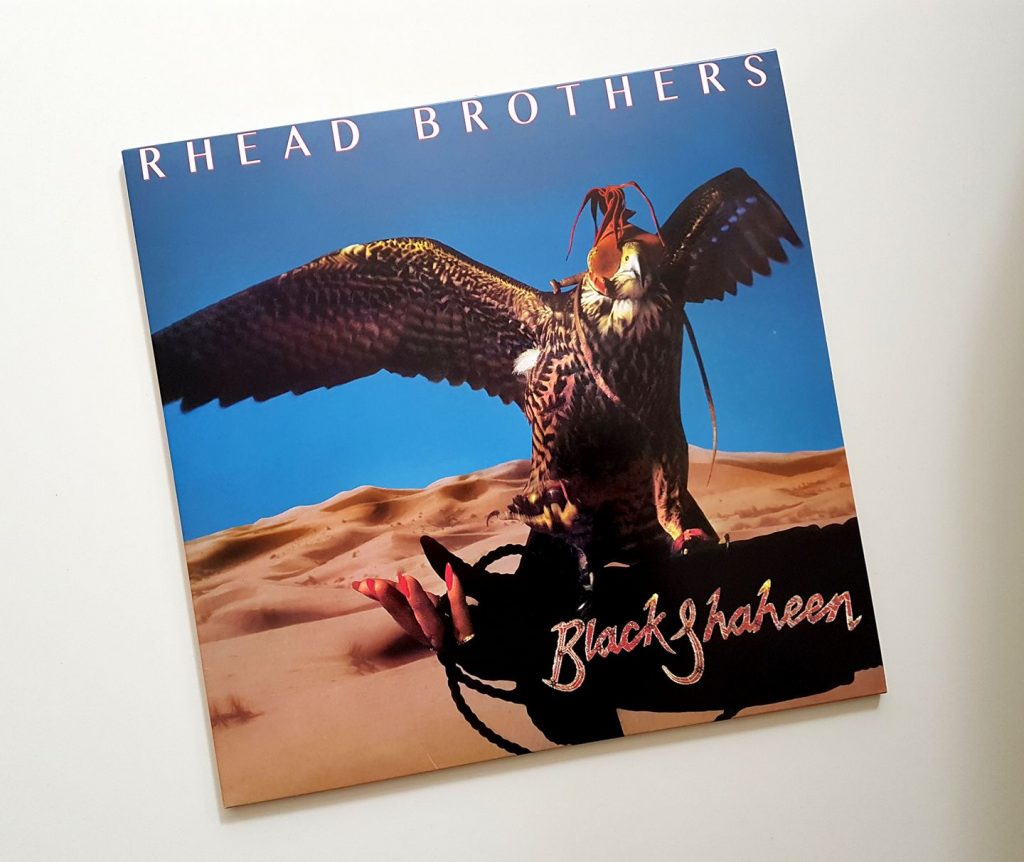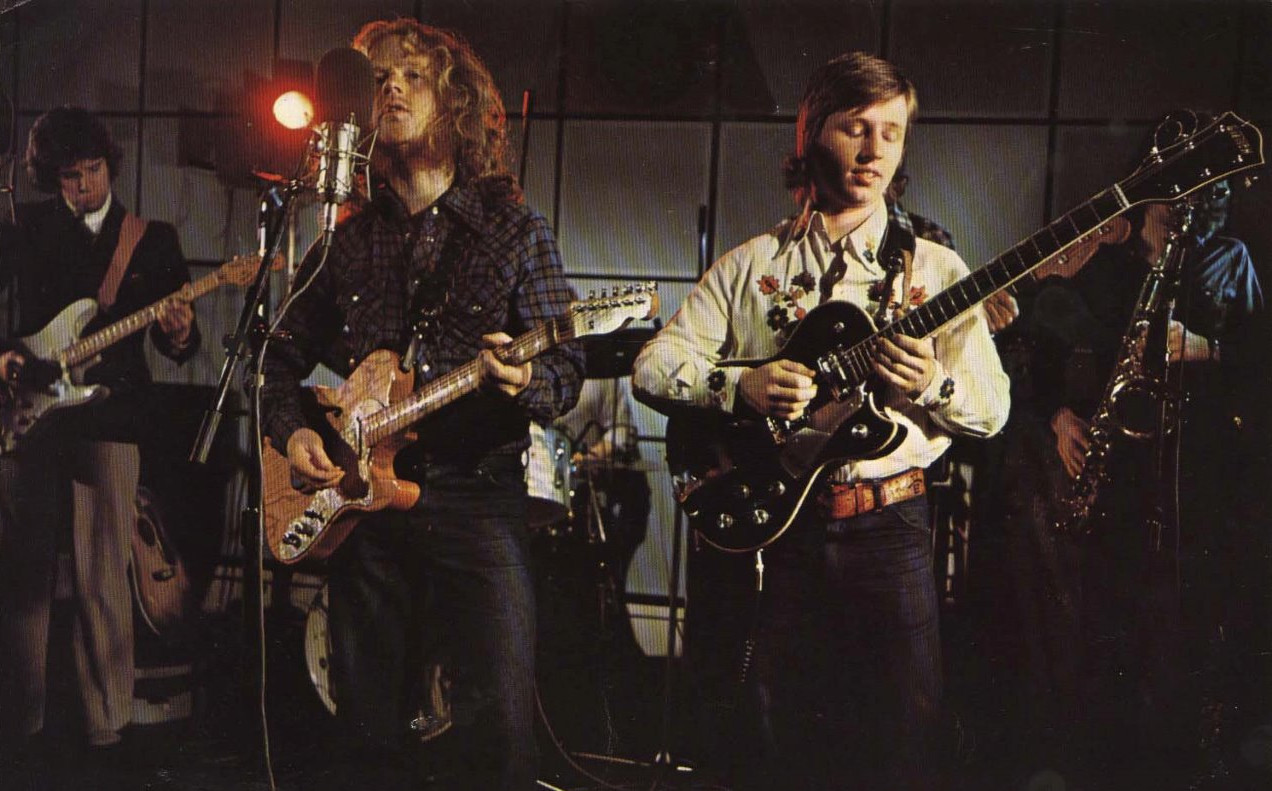John, when did Stephen and you start making music together?
I was already playing in local bands when Steve was developing his fast developing guitar skills, at home. We started playing together when the band I was playing in lost a guitar player. Although far more than competent on acoustic Steve was fairly new to electric guitar but took to it unbelievably quickly and it was immediately obvious to all the band that the search for a new guitarist was over…..before it had begun.
Who were your musical role models at that time?
We had similar influences from different sources. Initially, mine came from an older friend who probably had the only record player in the area and got me into the likes of Buddy Holly and The Everlys. Via two musician cousins, Paul and Arthur, Steve and I were both introduced to jazz, blues and folk. Our ears were educated by players like Bert Jansch, Joe Pass, John Renborn, Davey Graham, Big Bill Bronzy and Doc Watson and Steve quickly got to grips with some of their various guitar styles. Later, we discovered Dylan and very significantly The Byrds…whose journey through the musical genres never failed to inspire. Their satellite musical formations, like C.S.N, Crosby and Nash, The Flying Burrito Brothers and Manassas only added grist to the mill… and through them we developed interests in Latin and country music. E.C.M became a favourite record label at this time and artists like Chick Corea, Airto, George Duke and Gary Burton also became influences. Personally and perhaps significantly, I also became a devotee of soul music which was greatly fostered by regular visits to a local club (The Golden Torch) where Al, Stevie, Otis, Marvin and Aretha were turntable favourites. Looking back, an appreciation of brass sections, like the Memphis and Muscle Shoals Horns, probably developed at this time.
When did you decide to turn your passion into a career?
I don’t remember when, if ever, we decided to make a career out of music but I do remember thinking that if we were ever to take that path we had to start writing our own material.
Do you remember your first steps in the music business? Are there any special anecdotes you like to remember from this early days?
I certainly remember the first steps in the music business. Perhaps best described by the Desert Rose Band track ‘One Step Forward and Two Steps Back’! In truth, our experience was probably little different than most bands. Amongst the most memorable, however, was the day Derek Taylor, of Beatles and Byrds fame, journeyed up to Stoke, watched us rehearse and ultimately uttered the words …”do you have any preference for Electra, Warners or Atlantic?” Eventually, we settled on Warners, never made a record for them but via Derek met George Harrison, a host of other ‘ musical inspirations’ and significantly one John Darnley Esq. Our next stop was Anchor Records, formed by ex Warner luminaries Ian Ralfini and Martin Wyatt.
Again no record released but a definite plus of this liaison was a back stage pass to a concert by the fast emerging Steely Dan. Educational on every level is probably the best way to describe this one! Add to this the discovery of the special talents of Michael McDonald and it remains a very special night in our musical journey.
How did the record deal with EMI come about?
The deal with EMI came via John Darnley, former employee of W.E.A where his job entailed making sure every act that came to town had a good time. Suffice to say, he was extremely good at his job! However, his new post with EMI was that of A&R man ……and the words “come with me and you WILL make a record” were enough for us to jump ship, yet again. J.D was as good as his word and within weeks were in Air Studios, alongside some very fine ‘hand-picked’ musicians and their friends….and making an album! A memorable moment took place shortly after the album was first released. Steve and I were in J.D’s office when a head appeared around the door and announced “Hi boys…just to let you know I’m taking the album home.” and with a wave and a smile Paul McCartney left the building.
John, your debut album “Dedicate” was produced by John Darnley and Phil McDonald, who later also worked with George Harrison. How was the collaboration with them?
Phil McDonald was a friend of John’s and Derek Taylor (now at Apple Corps) and was J.D’s choice as producer. Rehearsals quickly demonstrated that the songs would be best served by different combinations of player and to John and Phil’s credit they asked us to supply our ideal combination of player for each track! Somehow, they met our requests and we were extremely grateful. Also, as we quickly, discovered that fine players know other fine players and if someone wasn’t available an equally talented individual was quietly sourced. Indeed, a replacement percussionist, courtesy of Charlie Whitney and unflatteringly described by him as “experienced” turned out to be Mitch Mitchell. Memorable times.
You worked with great musicians on “Dedicate”, including Max Middleton, who played amongst others keyboards for Jeff Beck, and the great guitarist Charlie Whitney, who founded the band Streetwalkers with Roger Chapman in 1973. Please tell us a little bit about the recording sessions.
We certainly did and not one of them was anything other than totally supportive. Preliminary rehearsals were done in Devon and the two Charlie’s (Ava and Humprey) and Rob were the back bone of the sessions. Suffice to say they were exceptional, both as musical collaborators…. and suppliers of extra curricular activities: including an impromptu Speakeasy session with the members of Zep, as J.D liked to call them! Once in Air Studios it was exhilarating to ‘work things out’ with the likes of Max, Richard, Mel and the other great players. I particularly remember Frank Ricotti handing me a cowbell and saying “show me the kind of groove you’re looking for” on Woman of Soul. From then on it was him and Richard at the helm. Unforgettable…..as was Max’s mesmeric Rhodes and Steve’s sinuous guitar.
A chance meeting with Albert Lee supplied what was to be the delight of nearly every player involved. Gerry Hogan was the answer to my question about securing the services of a pedal steel guitarist and he was a revelation. A wonderful musician and equally fine human being.
A non-musical memory has to be the frequent appearance of Brian Ferry who was recording next door and needed to know “how things were going”.

In 1977 your debut album “Dedicate” reached number 30 in the US Billboard Charts, the signs were set for success for the Rhead Brothers. How did it go on for you after the record was released? Were you on tour?
To the delight of EMI International ‘Dedicate’ was released worldwide and became a Billboard Breakout album in the U.S. For Steve and I this meant a totally unexpected Radio Station and Record Store event throughout several American States. Sadly, because of time restrictions and the unavailability of key players, due to prior commitments, a full tour was never on the cards. However, we did perform a few staged events with pre recorded tapes and live vocals! The least said the better.
Another visit to New York and Los Angeles to meet prospective Management Companies followed but was not particularly fruitful (possibly due to our lack of enthusiasm) but stays in the Hollywood Hills with John Dixon of Capitol Records and a visit to Capitol Tower, to view R.B merchandise, more than made up for it.
A short Dutch Tour centred on Amsterdam did ensue with The Paradiso Club and a superb band of musicians being the highlights. Next up were a few demo sessions in London and then off to Muscle Shoals.
In late ’78, Steve and you flew to Muscle Shoals, Alabama. Who had the idea to record the follow-up album in the heartland of Southern Soul? Were you looking for a different sound?
EMI first proposed the idea and at first we were sceptical. We had developed a great rapport with the musicians on ‘Dedicate’ and it seemed slightly risky to leave that all behind. Talks with several more experienced musicians however convinced us that the risk was worth taking. Some even suggested we’d be crazy not to go. In the end the thought of greater cohesion by using fewer musicians sealed the deal. Optimism won out over apprehension and there was always the draw of the M.S Horns……and we could always use Mel for some solos! And we did.
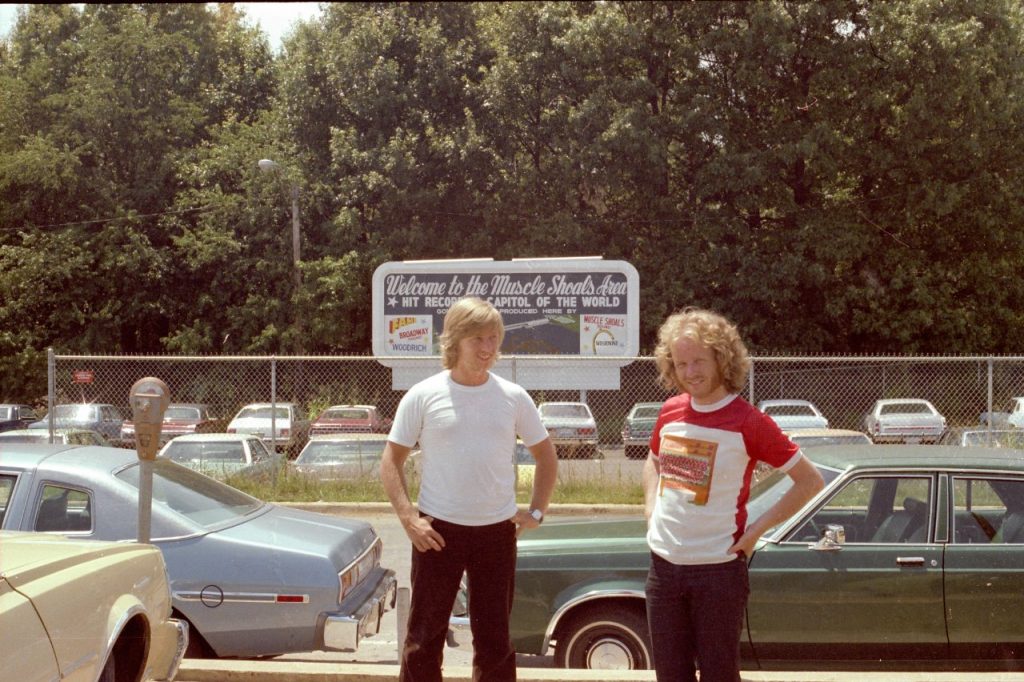
Two English boys in Alabama… Did you experience a culture shock when you got off the plane?
We experienced heat and unbelievable humidity but the reception from the guys at Wishbone Studios was uplifting and when the players ran through a quick warm up session we were more than convinced.
Producers Terry Woodford and Clayton Ivey, two veterans of the Muscle Shoals sound, sat at the mixing console when you record your second album “Black Shaheen”. How did you experience them?
It worked out with Terry at the console and Clayton in the studio with the musicians and both were superb. Clayton acted as a fulcrum between ourselves, the musicians and Terry and the engineers, personally absorbing all changes, rhythms and arrangements and offering the occasional, ever so tasty, suggestion. All our suggested horn lines, bass lines and backing vocals were relayed either by humming or played on six-string but nothing phased Clayton. Terry and his engineers were equally impressive. Going back weeks later to hear his final mix including Max’s orchestration and Mel and Robert’s overdubs was exhilarating.
What was it like working in the Wishbone Studios and how was the collaboration with the session musicians?
The musicians involved were as gifted and generous with their talents as those on ‘Dedicate’. The rhythm section of Roger and Bob were operated by the same brain, I’m sure. Steve and Mac became temporary acoustic brothers and Larry revealed himself as a master of taste and tone. As for the Wishbone Angels, they were a revelation. To this day, Steve and I are still not sure if their contribution came about by divine intervention or whether they were always part of the Woodford/Ivey plan! Always around the studio, Steve and I thought they were girlfriends of the musicians but from the day Marie humbly suggested that they had a vocal arrangement for ‘Strange Mercy’, they were hired! The Horns were everything we thought they’d be and more. Fine players and devilishly funny. The cream on the cake was the day Wayne Jackson strode into the studio. Straight out of his Winnebago, complete with shrine to John Wayne, he pulled up to the mike and three takes later had soloed on “Loves a Crazy Game” I dearly wanted to speak to him about all the music he had played on and I had listened to during my Golden Torch days but he only had time to give us a brief tour of the shrine and he was gone……back to Memphis and his other Horns.
What makes the magic of the Muscle Shoals sound for you?
Wishbone and Muscle Shoals might have been our musical home. All involved were completely in tune with what we trying to achieve. They could hear our influences and shared a lot of them. Most of all they made it easy. We had worked with funky musicians on ‘Dedicate’ but M.S funkiness was that bit different….but impossible to quantify. They were just class, ‘down home’ as musicians and people. Nothing was too much trouble. Sadly, Roger has now left us but his playing on B.S is a constant reminder of a fine, fine musician…..and friend.
I’ve read, that after the recording you left in a state of euphoria. But back in England the tide turned. What happened with “Black Shaheen”?
Maybe it was too long ago to accurately and fairly answer this question and my answer may well differ from an EMI executive of the time. To Steve and I, however it was hard to fathom. On completion of the initial recordings EMI flew us down to Nashville for a week’s holiday in the Continental Hotel. Of course, in the end we’d probably have paid the bill but it was a nice touch. Later on, they flew some of the Wishbone musicians into London and together with players on Dedicate we played the EMI Convention. All seemed well at the time but a change of heart quickly followed. Certainly, we did not like the lifeless cuts offered to us (to my ears Preservation Records is superior). They did print several thousand complete with cover and over the years a substantial number were ‘liberated’. The final straw probably came with the suggestion that we should replace several tracks with greater commercial appeal. Too much passion had been put into Black Shaheen and frankly that was never going to happen. Eventually it all just petered out.
After EMI was taken over, the Rhead Brothers were one of the bands, which had to go. Were you surprised by this development?
Surprised? No. Disappointed? Yes…..but Johnny Rotten had already entered the building.
How did it go on for you both? Did you try to find a new label?
Not enthusiastically….we could see which way the wind was blowing. I headed for the Scottish Highlands, got back into bird conservation and raised a family with my lovely wife. Steve threw himself into musical education, particularly for those souls with learning difficulties, played in many more musical line ups and also raised a family.
“Black Shaheen” was long considered one of the lost albums of West Coast music. The few copies that were on the market were hardly affordable. Then Preservation Records raised this treasure. How did it come about?
My daughter contacted me and said someone on Facebook was suggesting Preservation Records release Rhead Brothers second album. Being neither on Facebook nor any other such platform it took me a while to track the reference down. Thankfully, I persevered, found the link, involving one Dan Proverbs, and emailed Preservation Records. I despatched an album to Tobias; he immediately gave it the thumbs up and it happened….a rare occurrence in the music industry. To be fair, Toshi Kanazawa, via You Tube, had earlier offered to release the record but my poor navigation skills around these platforms meant it was a couple of years before I even saw the offer! Still, he, along with Jun Yamaya, helped get ‘Dedicate’ released on CD in both South Korea and Japan and a couple of years later (with Tobias’s help) released a finely produced CD of Black Shaheen, as a follow on to his article in Japanese Record Collector. A big thank you to all of them.
Did the worldwide enthusiasm for the album surprise you?
Of course, a lot of water had gone under the bridge.
John, what role does music still play for you today?
Steve and I will always love music and I’m forever hoping to hear something new that will blow my socks off. It happens very occasionally but I have to admit I still hark back to the days when ‘Eight Miles High’ opened up a whole new musical horizon for me. Both of us still write the occasional song and I dream of recording a final single release….at the very least least!
One last question, John: In retrospect, what does it mean to you to have been part of the Rhead Brothers back in the 70s?
You need more than a degree of talent to achieve the little Steve and I achieved. We persevered and got lucky. It means a lot to see our name amongst bands and musicians we still greatly admire but most of all we are grateful to those who still want to listen to our efforts. Oh……and we had the assistance of some superb players, singers and producers.
Thank you very much for the interview, John!
It’s been great fun, Thomas….thanks for asking.
The photos were kindly provided to us by John Rhead.
Discography
Dedicate (1977)
In 1977 the Rhead Brothers released their brilliant debut album “Dedicate”. On this record, John Rhead and his brother Stephen created a sublime blend of Latin inflected jazz grooves with a slight Steely Dan touch, smooth CSNY-influenced West Coast Rock and Blue-Eyed Soul. The brothers recorded the album with session cats like Charlie McCracken, Charlie Whitney, Mel Collins, Frank Ricotti and Max Middleton. Although the debut reached number 30 in the US Billboard Charts, their second album had to wait almost 40 years for its release. “Dedicate” is a wonderful West Coast music gem – highly recommended.
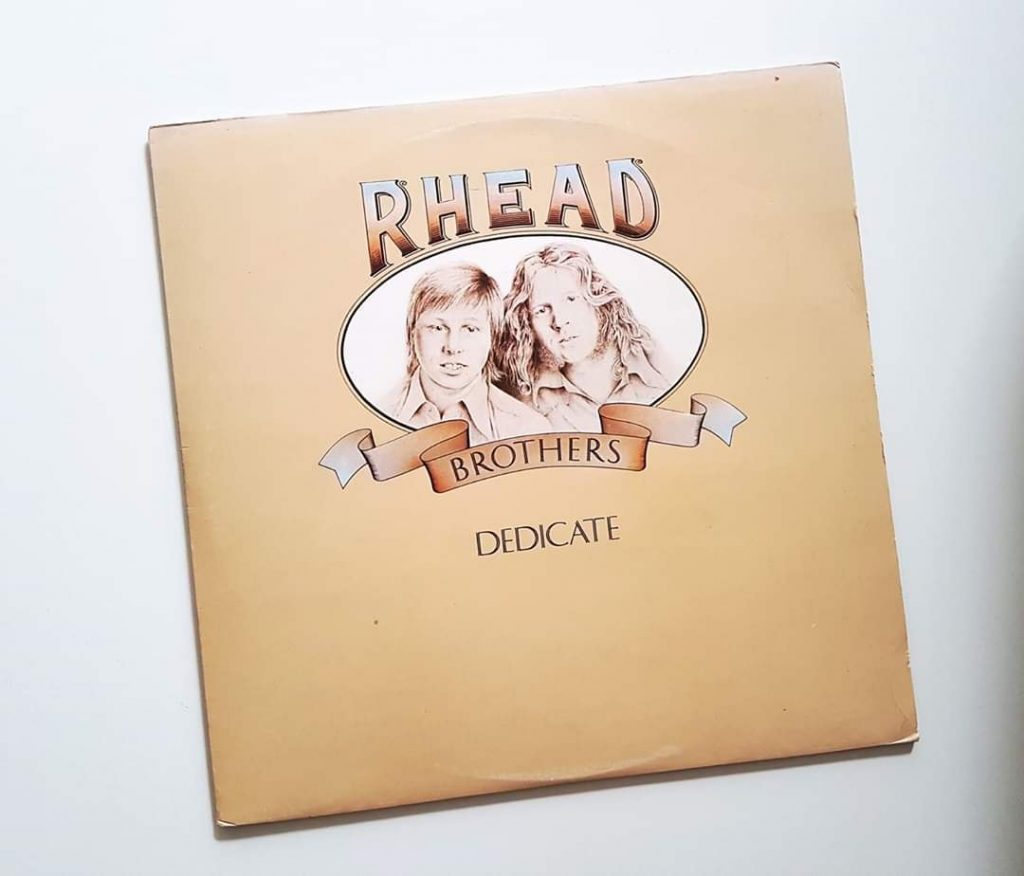
Black Shaheen (1978/ 2016)
The things were going well for the Rhead Brothers in the late 70s: Their debut album “Dedicate” had reached number 30 in the US-charts in 1977 and a few months later the brothers Steve and John Rhead were on their way to the Wishbone Studios in Muscle Shoals, Alabama, to record their second album. The result was a sublime mix of blue-eyd soul, jazzy Steely Dan inflected arrangements and latin flavored West Coast vibes – all refined with southern funkiness. Back in England the tide turned: EMI had printed 10,000 copies at the wrong speed. And after EMI was taken over, the Rhead Brothers were one of the bands, which had to go. So “Black Shaheen” was never officially released – till 2016, when Preservation Records rescued this lost masterpiece for music enthusiasts.
